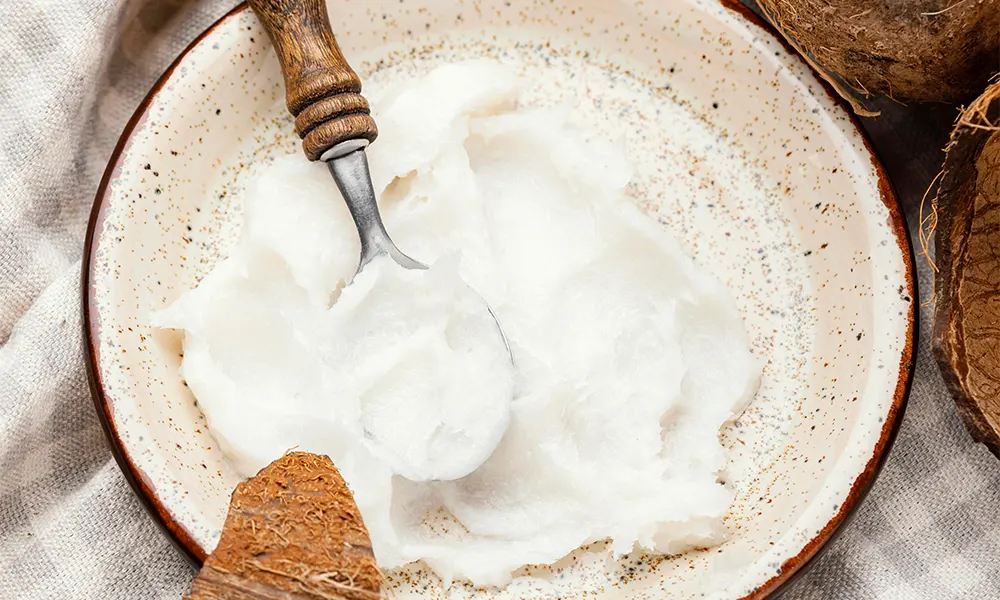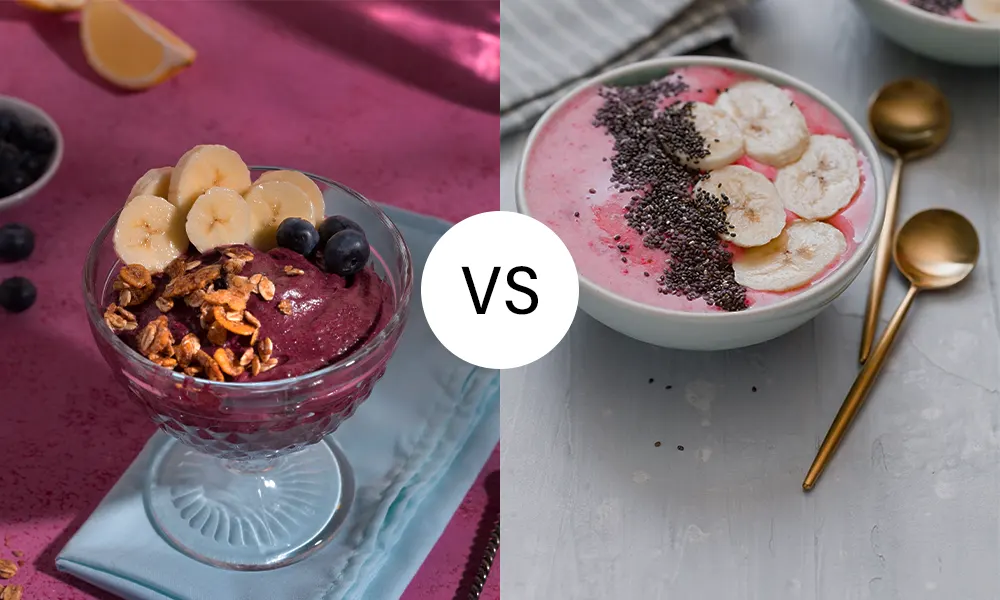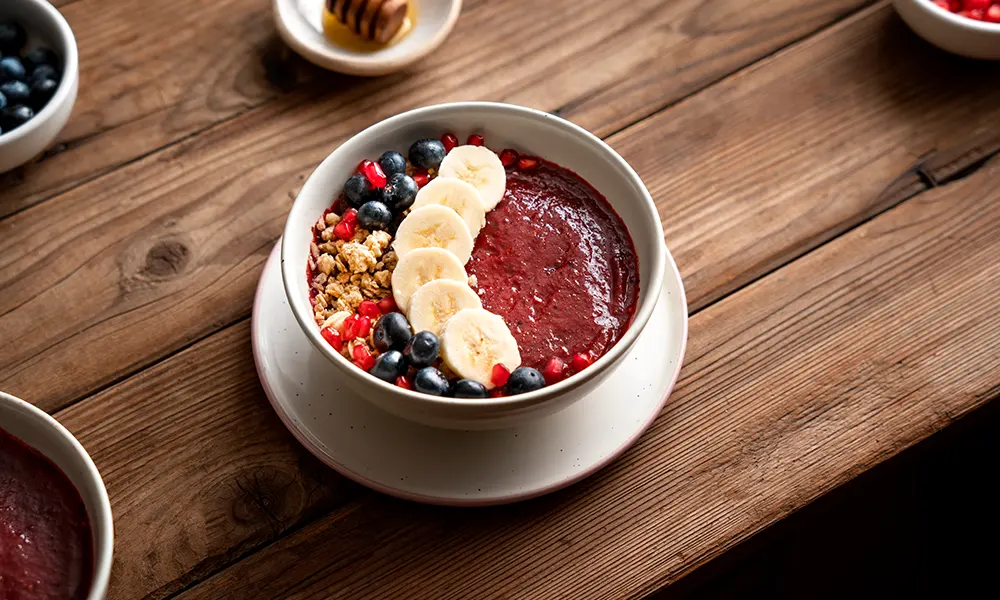If you’ve been exploring dairy alternatives or simply looking for healthier options to include in your diet, coconut yoghurt might have caught your attention. It’s often touted as a more nutritious, lactose-free, and plant-based alternative to traditional dairy yoghurt. But what exactly makes coconut yoghurt stand out from other yoghurt varieties? And why should you consider adding it to your diet?
In this blog, we’ll explore the nutritional benefits of coconut yoghurt, how it can contribute to better health, and why it could be a great addition to your daily meals. Whether you’re lactose intolerant, vegan, or just looking for a refreshing snack, coconut yoghurt offers numerous health benefits that may surprise you.
Let’s dive in and uncover what makes coconut yoghurt a valuable choice for your nutrition.
1. What is Coconut Yoghurt?
Before we dive into the specific benefits, it’s essential to understand what coconut yoghurt is and how it’s made. Unlike traditional yoghurt, which is made from cow’s milk, coconut yoghurt is plant-based and made from coconut milk. The process involves fermenting coconut milk with live probiotic cultures, just like regular yoghurt.
The Fermentation Process
Fermentation is the key to making coconut yoghurt. During this process, probiotic bacteria are introduced to the coconut milk, converting lactose (the sugar found in milk) into lactic acid. This is what gives the yoghurt its tangy flavour and thick texture. It’s also what makes coconut yoghurt a great source of probiotics, which are beneficial bacteria that support gut health.
While coconut yoghurt does not contain dairy or lactose, it provides a similar creamy texture and taste that is comparable to traditional yoghurt. This makes it a suitable alternative for individuals who cannot consume dairy but still crave the rich and satisfying qualities of yoghurt.
2. Rich in Healthy Fats
One of the standout nutritional benefits of coconut yoghurt is its content of healthy fats. Unlike regular dairy yoghurt, which is typically low in fat, coconut yoghurt contains medium-chain triglycerides (MCTs). These fats are more easily digested and metabolised by the body than long-chain fatty acids found in other foods.
Why MCTs Matter:
- Quick source of energy: MCTs are rapidly converted into energy by the body, which makes them ideal for a quick energy boost.
- Supports weight management: Some studies suggest that MCTs may help with weight loss by increasing satiety (the feeling of fullness) and boosting metabolism.
- Improves brain function: MCTs are known to support brain health and may improve cognitive function, making them an excellent addition to your diet if you want to maintain mental clarity throughout the day.
Incorporating coconut yoghurt into your meals can provide a dose of these healthy fats, helping you maintain energy levels and promote overall well-being.
3. Packed with Probiotics for Digestive Health
One of the most significant health benefits of coconut yoghurt is its high probiotic content. Probiotics are live bacteria that are beneficial for your gut health. Since coconut yoghurt is fermented, it naturally contains probiotics, similar to traditional yoghurt. These beneficial bacteria can help maintain a healthy balance of gut microbiota, which plays a vital role in digestion and overall immune health.
How Probiotics Support Digestion:
- Improves gut health: Probiotics help maintain a healthy balance of bacteria in the gut, which can aid in digestion and prevent issues like bloating, constipation, and diarrhoea.
- Boosts immunity: A healthy gut microbiota supports a strong immune system, as a large portion of your immune cells reside in the digestive tract.
- Enhances nutrient absorption: A healthy gut can better absorb nutrients from the foods you eat, ensuring that your body gets the vitamins and minerals it needs.
By incorporating coconut yoghurt into your diet, you can support your digestive health and enhance your body’s ability to absorb key nutrients.
4. Lactose-Free and Dairy-Free Alternative
For those who are lactose intolerant, finding dairy-free alternatives that still provide the creamy texture and tangy flavour of traditional yoghurt can be a challenge. Coconut yoghurt is naturally lactose-free, making it an excellent option for people who cannot tolerate lactose.
Since coconut yoghurt is made from coconut milk rather than cow’s milk, it does not contain any lactose, which can cause digestive discomfort for individuals with lactose intolerance. This makes coconut yoghurt a gut-friendly alternative for those looking to avoid dairy while still enjoying a similar product.
Why Dairy-Free Matters:
- Reduces digestive discomfort: For individuals who are lactose intolerant, dairy can cause bloating, gas, and discomfort. Coconut yoghurt provides a dairy-free solution that doesn’t compromise on taste or texture.
- Supports vegan diets: Coconut yoghurt is also a suitable option for those following a vegan diet. Unlike dairy yoghurt, which comes from animals, coconut yoghurt is plant-based and cruelty-free.
If you’re looking to eliminate dairy from your diet or need a lactose-free alternative, coconut yoghurt can offer a satisfying and nutritious solution.
5. Rich in Vitamins and Minerals
In addition to healthy fats and probiotics, coconut yoghurt is also a good source of several essential vitamins and minerals. These nutrients play important roles in overall health, from supporting immune function to maintaining bone health.
Key Nutrients in Coconut Yoghurt:
- Calcium: While coconut yoghurt contains less calcium than dairy yoghurt, it can still be a source of this important mineral. Many coconut yoghurt brands fortify their products with added calcium to ensure it can support bone health.
- Magnesium: This mineral is involved in over 300 biochemical reactions in the body, including muscle and nerve function, blood sugar control, and blood pressure regulation.
- Vitamin D: Some coconut yoghurt products are fortified with vitamin D, which helps with the absorption of calcium and supports immune function.
These vitamins and minerals make coconut yoghurt a nutrient-dense food that can contribute to your daily intake of essential nutrients.
6. Antioxidant-Rich Coconut Yoghurt
Coconut milk, the base ingredient in coconut yoghurt, is rich in antioxidants, which help protect the body against free radical damage. Free radicals are unstable molecules that can cause oxidative stress, leading to cell damage and contributing to chronic diseases such as heart disease and cancer.
By consuming coconut yoghurt, you’re adding an antioxidant-rich food to your diet that can help protect your cells and support your overall health.
How Antioxidants Help:
- Protect against oxidative stress: Antioxidants neutralise free radicals and help reduce oxidative damage in the body.
- Support skin health: Antioxidants in coconut yoghurt may help protect the skin from premature ageing by combating oxidative damage caused by environmental stressors like UV rays and pollution.
- Promote heart health: Antioxidants may also help improve cardiovascular health by reducing inflammation and preventing the oxidation of LDL cholesterol (the “bad” cholesterol).
Incorporating coconut yoghurt into your diet can provide a delicious way to increase your antioxidant intake.
7. How to Incorporate Coconut Yoghurt Into Your Meals
Now that we’ve covered the numerous benefits of coconut yoghurt, you might be wondering how to incorporate it into your daily meals. Fortunately, coconut yoghurt is extremely versatile and can be used in various dishes, from breakfasts to desserts.
Breakfast Ideas:
- Smoothie bowls: Add a scoop of coconut yoghurt to your morning smoothie bowl for extra creaminess and probiotics.
- Parfaits: Layer coconut yoghurt with granola and fresh fruit for a quick and nutritious breakfast parfait.
Snack Ideas:
- Dip for fruit or veggies: Use coconut yoghurt as a dip for apple slices, berries, or cucumber sticks.
- Topping for pancakes or waffles: Swap out traditional cream for coconut yoghurt on top of pancakes or waffles for a dairy-free breakfast option.
Dessert Ideas:
- Coconut yoghurt ice cream: Freeze coconut yoghurt with your favourite fruit or a drizzle of honey for a simple homemade ice cream.
- Yoghurt-based mousse: Combine coconut yoghurt with cocoa powder, vanilla, and a bit of sweetener for a light and creamy mousse.
Conclusion: Add Coconut Yoghurt to Your Diet Today
With its rich nutrient profile, digestive benefits, and versatility, coconut yoghurt is a food that can easily fit into your daily routine. Whether you’re lactose intolerant, vegan, or simply looking for a nutritious and refreshing alternative to dairy, coconut yoghurt provides a wealth of health benefits.
Looking for a fresh, high-quality coconut yoghurt option? Yohayo offers a range of coconut yoghurt products made with organic ingredients. For more information or to contact us directly, check out our contact page. Start incorporating coconut yoghurt into your meals today and enjoy its numerous health benefits!
FAQs
1. Is coconut yoghurt better than dairy yoghurt?
Coconut yoghurt offers a dairy-free, lactose-free alternative with the added benefits of healthy fats from coconut. However, if you’re looking for a higher protein content, dairy yoghurt might be a better option, though coconut yoghurt is still highly nutritious.
2. Can I use coconut yoghurt in cooking and baking?
Yes, coconut yoghurt can be used in both cooking and baking as a substitute for sour cream or regular yoghurt in many recipes. It’s particularly good for dairy-free dishes or to add a creamy texture.
3. Is coconut yoghurt high in sugar?
It depends on the brand. Some coconut yoghurts contain added sugar, so it’s best to check the labels. You can opt for unsweetened varieties to keep your sugar intake low.
4. Can coconut yoghurt help with gut health?
Yes, like other fermented products, coconut yoghurt contains probiotics that promote a healthy gut microbiome, which is essential for digestion and overall immune function.
5. Can coconut yoghurt be part of a weight loss diet?
Coconut yoghurt can be a healthy part of a weight loss diet if consumed in moderation. It’s rich in healthy fats, which can help keep you full, but make sure to choose unsweetened varieties to avoid excess sugar.





